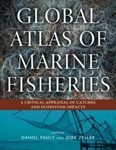About this book
This innovative volume provides a blueprint for managing the challenges of ocean conservation using marine historical ecology – an interdisciplinary area of study that is helping society to gain a more in-depth understanding of past human-environmental interactions in coastal and marine ecosystems, and the ecological and social outcomes associated with these interactions.
Developed by groundbreaking practitioners in the field, Marine Historical Ecology in Conservation highlights the innovative ways that historical ecology can be applied to improve conservation and management efforts in the oceans.
Marine Historical Ecology in Conservation focuses on four key challenges that confront marine conservation: (1) recovering endangered species, (2) conserving fisheries, (3) restoring ecosystems, and (4) engaging the public. Chapters emphasize real-world conservation scenarios appropriate for students, faculty, researchers, and practitioners in marine science, conservation biology, natural resource management, paleoecology, and marine and coastal archaeology. By focusing on success stories and applied solutions, Marine Historical Ecology in Conservation delivers the required up-to-date science and tools needed for restoration and protection of ocean and coastal ecosystems.
Contents
Chapter Contributors
Viewpoint Contributors
Foreword (Daniel Pauly)
Acknowledgments
1. Managing Human Legacies in a Changing Sea: An Introduction (John N. Kittinger, Louise K. Blight, Keryn B. Gedan, and Loren McClenachan)
PART I. Recovering Endangered Species (Lead Section Editor: Louise K. Blight)
2. What Recovery of Exploited Marine Animals Tells Us about Management and Conservation (Heike K. Lotze)
3. Natural or Anthropogenic? Novel Community Reassembly after Historical Overharvest of Pacific Coast Pinnipeds (Jon M. Erlandson, Todd J. Braje, Robert L. DeLong, and Torben C. Rick)
4. Using Disparate Datasets to Reconstruct Historical Baselines of Animal Populations (Francesco Ferretti, Larry B. Crowder, and Fiorenza Micheli)
PART II. Conserving Fisheries (Lead Section Editor: John N. Kittinger)
5. Improving Fisheries Assessments Using Historical Data: Stock Status and Catch Limits (Alan M. Friedlander, Joshua Nowlis, and Haruko Koike)
6. Understanding Fisheries through Historical Reconstructions: Implications for Fishery Management and Policy (Dalal Al-Abdulrazzak, Dirk Zeller, and Daniel Pauly)
7. Back to the Future: Integrating Customary Practices and Institutions into Comanagement of Small-scale Fisheries (John N. Kittinger, Joshua E. Cinner, Shankar Aswani, and Alan T. White)
PART III. Restoring Ecosystems (Lead Section Editor: Keryn B. Gedan)
8. Historical Information for Ecological Restoration in Estuaries and Coastal Ecosystems (Keryn B. Gedan, Denise L. Breitburg, Robin M. Grossinger, and Torben C. Rick)
9. Estimates of Historical Ecosystem Service Provision Can Guide Restoration Efforts (Philine S. E. zu Ermgassen, Mark D. Spalding, and Robert D. Brumbaugh)
10. Incorporating Historical Perspectives into Systematic Marine Conservation Planning (Natalie C. Ban, John N. Kittinger, John M. Pandolfi, Robert L. Pressey, Ruth H. Thurstan, Matthew J. Lybolt, and Simon Hart)
PART IV. Engaging the Public (Lead Section Editor: Loren McClenachan)
11. Engaging Public Interest in the Ocean of the Past: The Promise of New Media (Catherine Marzin, Sian Evans, and Karen Alexander)
12. Choice without Memory: Uncovering the Narrative Potential of Historical Ecology (J. B. MacKinnon)
Index
Customer Reviews
Biography
John N. Kittinger, PhD, is a Social Science Fellow with the Center for Ocean Solutions at Stanford University and a Science Advisor for Conservation International's Hawai'i Fish Trust Program.
Loren McClenachan, PhD, is the Elizabeth and Lee Ainslie Assistant Professor of Environmental Studies at Colby College.
Keryn B. Gedan, PhD, is a lecturer in the Sustainable Development and Conservation Biology Graduate Program at University of Maryland.
Louise K. Blight, PhD, is a marine science specialist at World Wildlife Fund in Vancouver, Canada, and the owner of Procellaria Research and Consulting.
















![Les îles Saint-Paul et Amsterdam (Océan Indien Sud): Environnement Marin et Pêcheries [Saint-Paul and Amsterdam Islands (South Indian Ocean): Marine Environment and Fisheries]](http://mediacdn.nhbs.com/jackets/jackets_resizer_medium/26/260268.jpg?height=150&width=107)


















